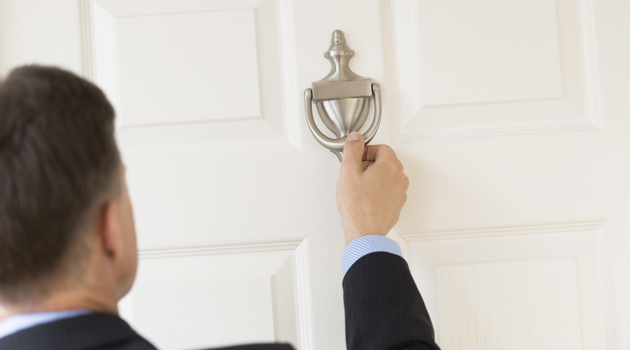4 Years On…..Health-wise, Has Anything Changed?
Being quizzed by chemist's assistant in Boots.
Angela Rayner lashes out and calls Sunak “pint sized loser”.


In these extraordinary times, the last thing on most of our minds is fraud. But, unfortunately, there have been reports of scammers using the coronavirus chaos to rip people off. Considering this, we have put together a list of top tips on how to avoid getting caught out by coronavirus fraudsters, as well as good practice for general scam avoidance. If you've ever been scammed and would like to share your experience, do post on our forums.
For more helpful tips, sign up to Gransnet now...
1. If you are in self-isolation, or are over 70, it's understandable to be worried about getting to the shops and you may want to ask for help from your local community. But if you do, make sure you're staying safe. Reach out through legitimate channels. Either call a trusted friend or neighbour directly, or get in touch with local organisers through Mutual-Aid groups.
2. The government have specifically warned people to be aware of companies that offer to clean your drives and doorways, claiming they can get rid of bacteria.
3. Don't put signs in your window asking for help - this makes you a target for scammers.
4. Don't hand over cash or your bank card to stangers who are offering to do your shopping - you may not see them again. If someone does do some shopping for you, pay them after they've dropped it off.
5. If someone visits and claims to be from the NHS or a utility service, ask to see their ID, then call their employer and check they are who they say they are. You're not being rude - if they're genuine, they'll understand and be trained to expect this.
6. It has been reported that some companies have been setting up websites offering people fake holiday refunds. If you are seeking a refund for a holiday that you have had to cancel, be extra vary.
7. The police have advised people not to order hand-santiser and masks online, warning they may never arrive.
8. Delete messages which claim to have information about the number of coronavirus cases in your area, or offering investment schemes which take advantage of the coronavirus financial downturn. These are likely to be 'phishing' emails - messages from fraudsters trying to steal your personal information.
1. Never open an email, attachments, or links to websites which have been sent unsolicited, as they may link to malicious software which could damage your computer. For more information about staying safe online, see the Age UK guide to internet security.
2. A common scam is an email which appears to be from your bank, asking you for your details and possibly threatening to close your account. The email may link to what looks like your bank’s official website. Your bank will never email you to ask for your details so delete emails like this immediately.
3. Online forums, social networks and online dating sites are a great way to meet new people. Trust your instinct though and don’t provide too much personal information, especially financial details. If someone tells you a hard luck story and asks for help or money, then block them, report them to the website moderator and don’t respond.
4. If you are concerned about friends or relatives, the National Trading Standards Scams Team has an initiative which aims to protect and prevent people from becoming victims of scams. Friends Against Scams offers a free online 20 minute course to learn about the different types of scams and how to spot and support a victim.

1. Never give out financial information or your PIN number over the phone. Your bank will never contact you for this information. If you are contacted by someone claiming to be from your bank informing you that you have been the victim of fraud, hang up the phone and call the bank yourself, from another line if possible, using the number from a statement or letter.
2. It's never pleasant getting unsolicited sales calls. To reduce the amount you receive register with the Telephone Preference Service – a free register to help you opt out of getting cold calls. Contact the TPS on 0845 703 4599.
3. If you get a phone call from someone claiming to be from a software company and asking about your computer, hang up. It’s a common scam to get you to download malicious software.
1. Ignore unsolicited invitations such as letters, emails or phone calls saying you’ve won a lottery or prize. Never reply - it shows your details are active which will encourage scammers to contact you again. Remember, if it seems too good to be true, it probably is. Contact the TPS on 0845 703 4599 to have your name taken off UK direct mailing lists.
2. Be careful about signing up for any "free trial" offers you may get through the post or online. Some try to get you to sign up and will then charge you after the trial has ended without informing you. Contact the Citizens Advice consumer service for advice on 03454 04 05 06.
3. Be wary of letters offering rare and time-limited investment opportunities or pyramid schemes where you have to recruit new members to a money-making venture. These schemes can lose you a lot of money. Don’t respond to the letters and seek advice if you have fallen victim to a scam like this. Call Action Fraud on 0300 123 2040.
Join a community of over 350,000 users by signing up to Gransnet now...

1. When a cold caller comes to your door, follow these simple steps to stay safe:
Double check by phoning the company they represent on a number you get yourself from the phone book. See the Age UK guide to avoiding scams and staying safe for more useful tips.
2. Don’t be rushed into buying anything on your doorstep, even if the seller has a time-limited special offer. Seek advice, take time to think and check out their credentials first. If they’re being too pushy or acting suspiciously, ask them to leave or call the police if they refuse. See our free guide avoiding scams for more information.
3. If you answer the door to someone who claims to be from a utility company or the council, ask for an identity card and check it. If in doubt, phone the company they represent to check who they are. If you’re suspicious or the caller won’t leave, call 999 and ask for the police.
4. Watch out for bogus charity collectors. They may come to your door to ask you to donate money, clothes or household goods for charity. They may even claim to be supporting victims of scams. Ask for their registered charity number and check it with the Charity Commission. If they are not registered then don’t donate to them and report them to the Charity Commission on 0845 300 0218 or on their website.
If you get a letter, email or phone call trying to persuade you to part with your pension cash, then be very cautious. Tricksters will use terms like "pension liberation" and "legal loopholes" and may offer you early access to your pension before the age of 55. Do not be tempted. Get free and impartial advice from the government's Pension Wise website and don’t be rushed into making decisions about your pension.
If you have been the victim of a scam, don't be embarrassed to report it. It could happen to anyone and reporting it could help to prevent other people from being tricked too. Action Fraud can advise you on what to do and may be able to track down the fraudster. Contact them on 0300 123 2040 or visit their website.
Images: Shutterstock